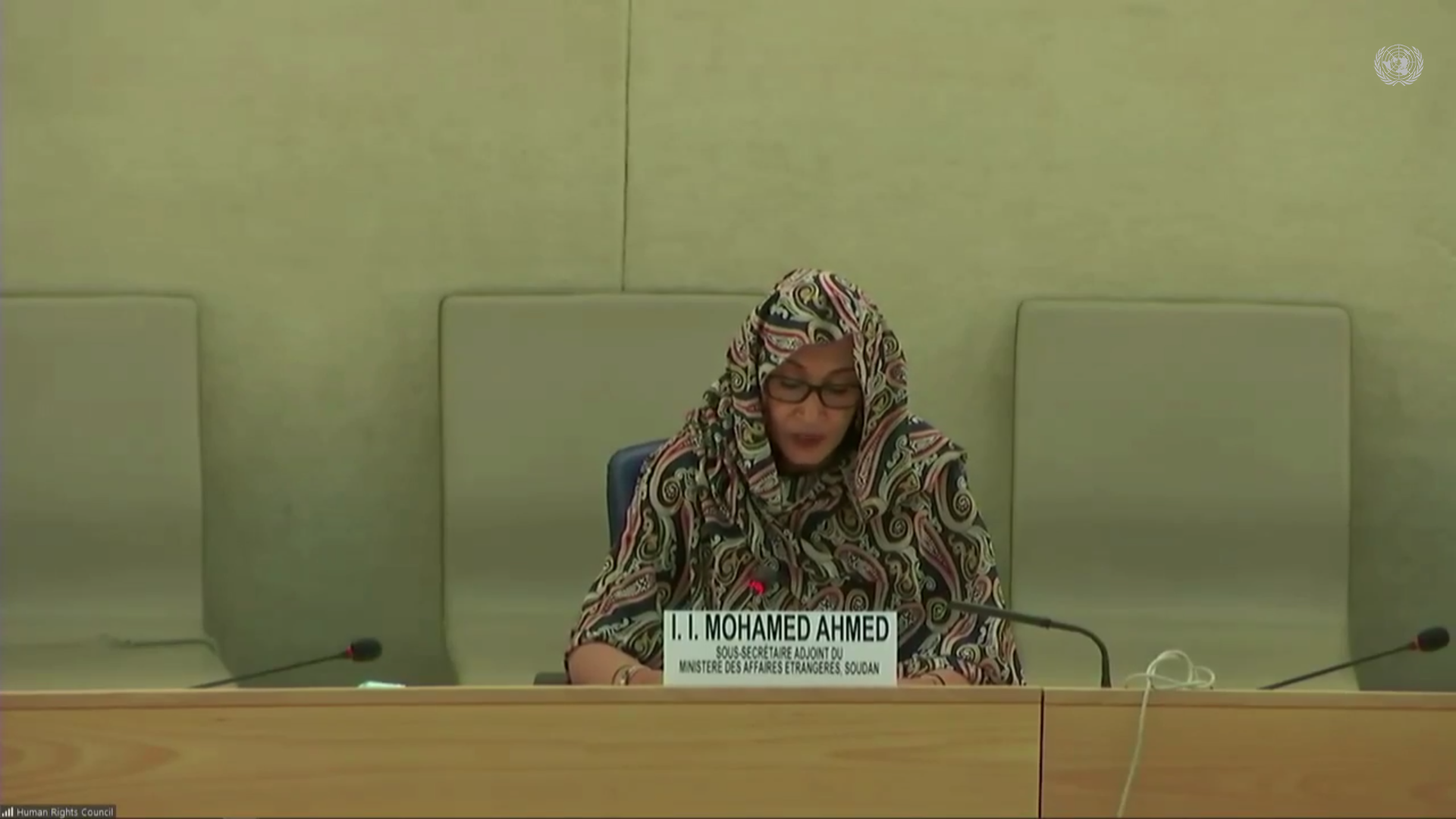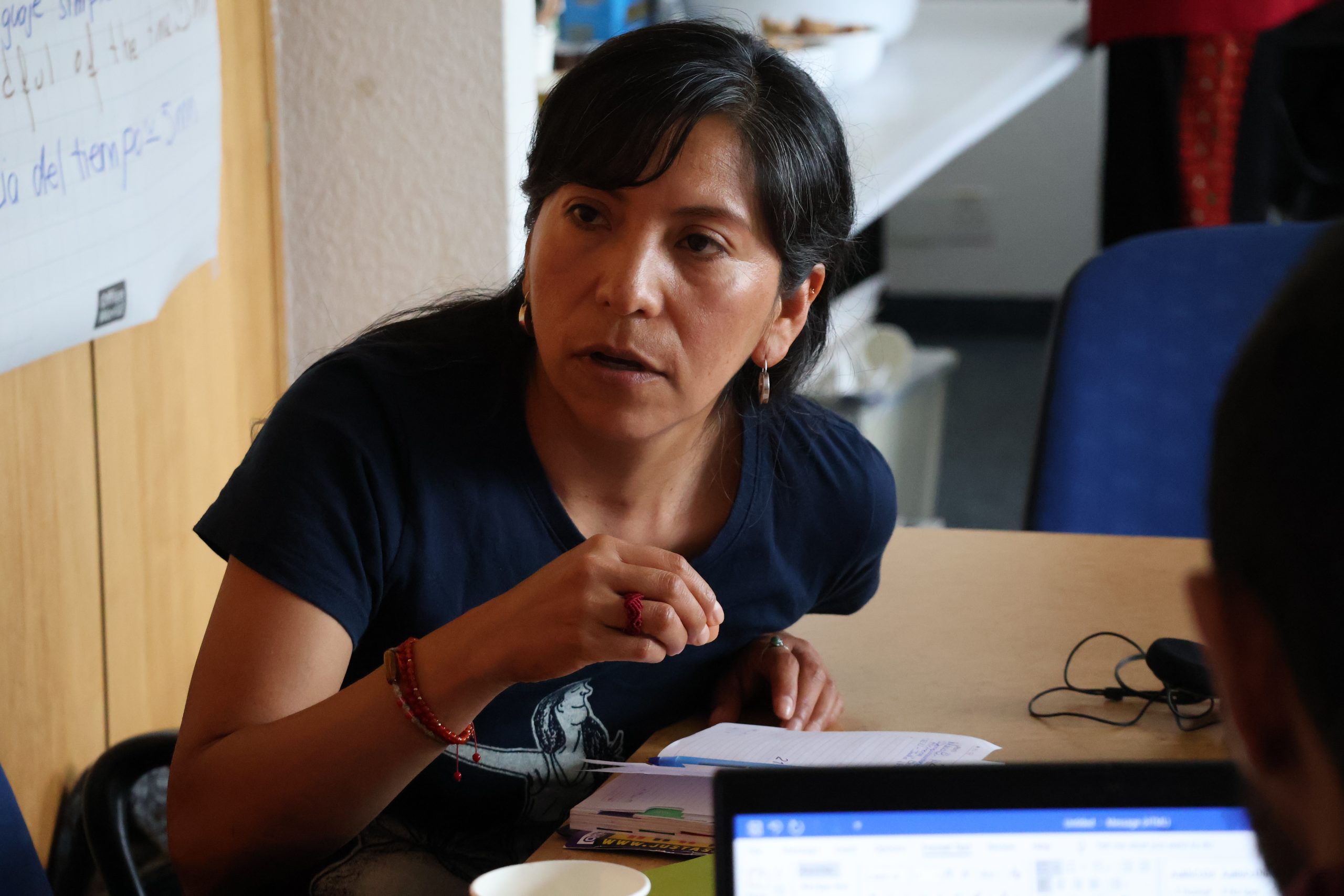
Egypt: Reform unjust vice laws, guarantee open civic space
During Egypt's UPR adoption at HRC59, Nora Noralla delivered a joint statement on behalf of ISHR, Cairo 52 and Middle East Democracy Center. Watch and read the full statement below.
© Photo: UN WEBTV

ISHR joined Sudan Women Rights Action, Nora Center for Combating Sexual Violence and MENA WHRD Coalition in calling on the Human Rights Council to support Sudanese women human rights defenders in their struggle for democratic transition, gender equality, peace, and protection from violence.
On 6 October at the 48th session of the UN Human Rights Council, ISHR delivered a joint statement during the enhanced interactive dialogue on the report of the High Commissioner on Sudan on behalf of the MENA Women Human Rights Defenders Coalition, Sudan Women Rights Action and Nora Center for Combating Sexual Violence. They highlighted the challenges facing women and women human rights defenders (WHRDs) in Sudan.
On 21 September 2021, Sudan’s democratic transition was threatened by a coup attempt. The organisations warned that the danger of the militarization of the State remains the most challenging peril for women’s rights and WHRDs in Sudan.
As a threat to the democratic transition represents a threat to women’s rights, Sudanese women groups organized protests to reaffirm their support for democratic change in Sudan.
Sudanese women achieved remarkable progress in putting gender equality at the top of the agenda for the transitional process following the revolution in 2018, including 40% participation for women. Despite this and other positive constitutional and legal developments, such as the slow commencement of the CEDAW ratification process, women in Sudan continue to face growing marginalization, discrimination, sexual violence, and abuse.
Sudanese women’s struggle for gender equality, peace and democracy has achieved some success after the revolution. But the transitional government failed to fully implement the constitutional documents’ commitments related to the issues of women political participation, women peace and security and protection from sexual violence.
The Deputy High Commissioner for Human Rights concurred that despite the commitments, women’s representation in decision making is lacking and below the 40% requirement.
Despite the commitments of protection and inclusion of women in the peace agreement, women in Darfur and the Eastern region face increasing violence as tribal tension continues, while attacks on civilians and sexual violence never stopped in all conflict areas of Sudan.
During the enhanced interactive dialogue, some States highlighted the continuing women’s rights issues and emphasised the need for enhanced protection for their rights.
Germany said “the transition in Sudan has brought remarkable progress. We welcome in particular concrete efforts to combat discrimination and violence against women.” Norway then urged the Government of Sudan to create an enabling environment for both human rights defenders and women. Saying they must implement the National Action Plan on Women, Peace and Security. Ireland echoed this call for implementation.
Whilst the EU noted the challenges that remain for women and girls in Sudan, the last call came from the Republic of Korea who expressed their shared concern about women and girls suffering SGBV and called on the government to do more to protect women’s rights.
The organisations called on the Council to increase support for the democratic transition in Sudan and put women’s rights at the core of this support. Sudanese women human rights defenders need the support of the international community to build and strengthen their efforts to achieve gender equality, peace, and protection from violence.
Watch the statement below:

During Egypt's UPR adoption at HRC59, Nora Noralla delivered a joint statement on behalf of ISHR, Cairo 52 and Middle East Democracy Center. Watch and read the full statement below.

At the Human Rights Council, Belgium delivered a statement on behalf of over 60 States that 'pays tribute to the numerous achievements and meaningful progress made by women and girls human rights defenders, and emphasises the continued need for their voices to be heard and supported'.

The 59th session of the UN Human Rights Council (16 June to 9 July 2025) will consider issues including civil society space, climate change, sexual orientation and gender identity, violence and discrimination against women and girls, poverty, peaceful assembly and association, and freedom of expression, among others. It will also present an opportunity to address grave human rights situations including in Afghanistan, Belarus, China, Eritrea, Israel and oPt, Sudan, Syria and Venezuela, among many others. Here’s an overview of some of the key issues on the agenda.